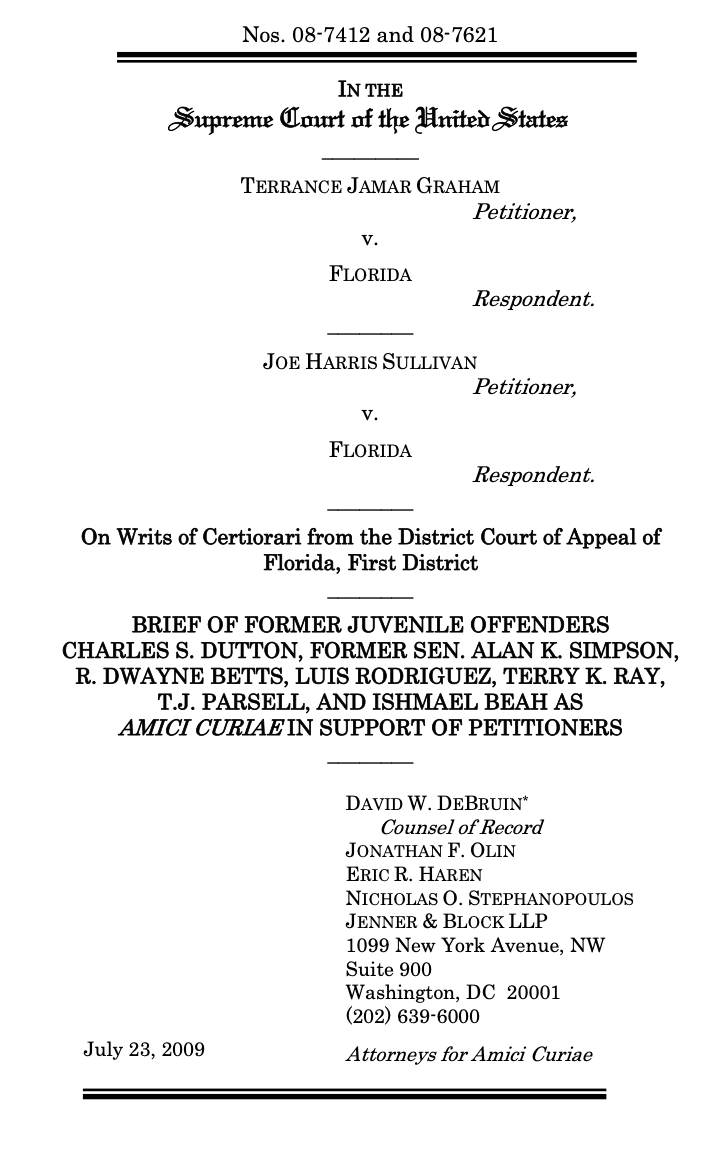
Summary of Argument
As the experiences of Amici show, it is fundamentally inhumane to give up on a youthful offender. The same distinctive characteristics of youth that render capital punishment unconstitutional for juvenile offenders make it equally improper to sentence them to life in prison without the possibility of parole. As this Court recognized in Roper v. Simmons, 543 U.S. 551 (2005), children are less susceptible to deterrence, less deserving of retribution, and, crucially, much more capable of rehabilitation. Like a death sentence, a sentence of life in prison without the possibility of parole ignores these important differences between adults and children.
As individuals who committed serious criminal offenses as juveniles but who subsequently have realized their mistakes, atoned for them, and rehabilitated themselves, Amici are uniquely situated to provide insight into the difficult issues presented in these cases. One of the Amici has helped to enforce the laws of the United States; another helped to write them. Others have made important national and even international contributions to social justice, culture and the arts, and business. Their stories, and the stories of others like them, prove that no matter how broken their spirit, nor how violent their actions, juveniles can be redeemed and can make contributions to society that would be tragic to lose. It is impossible to know what any juvenile offender will grow up to become. But it is also impossible to conclude that any juvenile offender has no redeeming potential, and therefore should be locked away for life with no possibility of parole. Although Amici come from a variety of backgrounds, each of them understands firsthand and proves the limitless potential of young people to change. They speak today with one voice and urge this Court to rule in Petitioners’ favor in these cases.